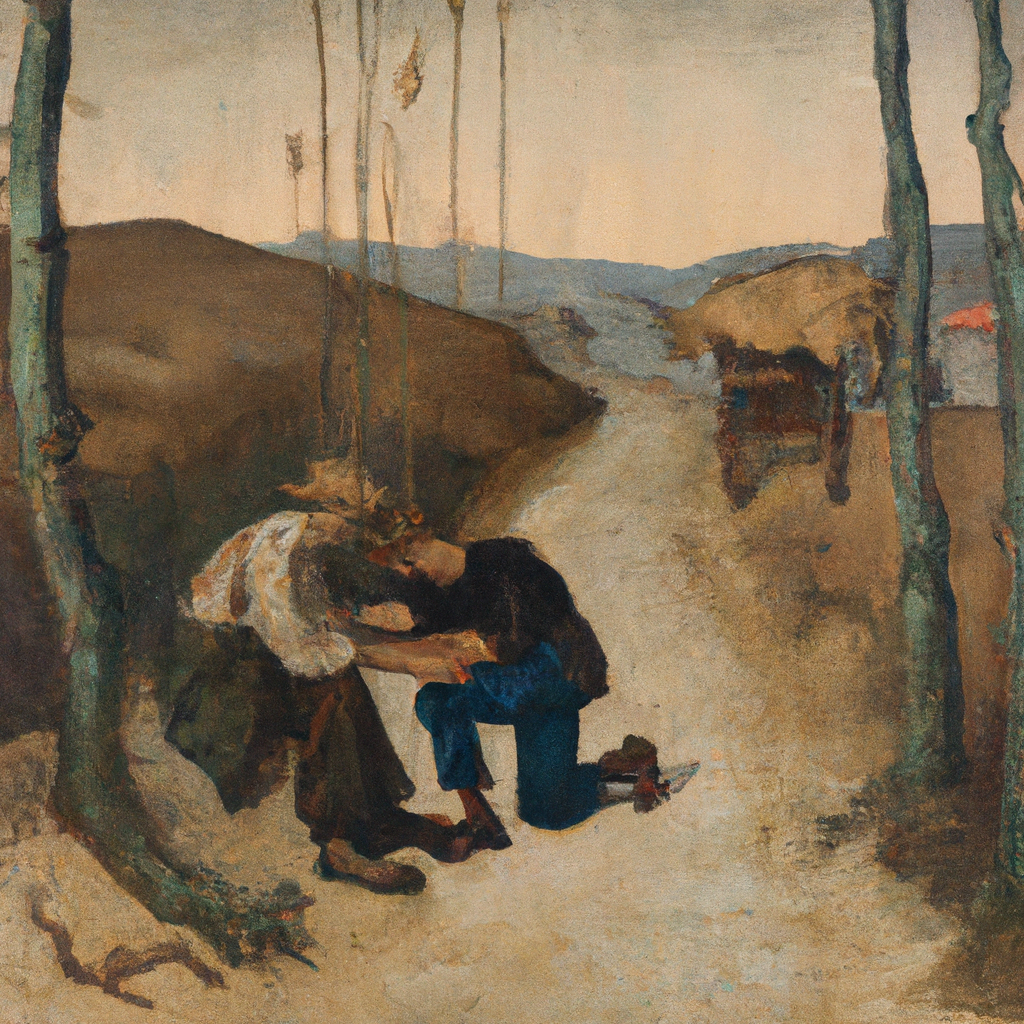Jesus Sends Out the Seventy-two
We can all imagine Jesus there, perched on a rock, motioning a crowd of seventy-two followers to gather around him. Jesus gave them specific instructions, telling them to travel light without extra provisions or money. Their focus was clear: they were not to let their material possessions distract them but to rely on God to provide for them on their journey.
You can almost hear the disciples chattering among themselves, maybe with some trepidation. There’s an unpredictability here, like dropping a pebble into a still pond and watching the ripples spread out. More than that, it is a moment of trust, giving up, and realizing they are entering a messy world of unknowns. Their assignment was difficult; it required courage, faith, and resilience. During it all, though, Jesus reminded them that He was sending them out like sheep among wolves: weak but safe because of His power.
As these disciples set out on their mission, they encountered welcoming towns and those who rejected them. No matter what response they got, Jesus taught them not to dwell on being turned down. Instead, he told them to shake off the dust on their feet as a sign against those who would not accept the message.
Jesus’ sending out seventy-two disciples emphasizes a fundamental idea: we are called to share the good news of salvation with others actively. It is a reminder that every believer has a role in advancing God’s kingdom here on earth.
“The seventy returned with joy, saying, ‘Lord, even the demons are subject to us in Your name.'” Luke 10:17.
They believed and were not let down. And isn’t that a lesson we all need to hold onto today? As these 72 people did so long ago, we can accept our calling with courage and humility.
The Parable of the Good Samaritan 
When you were in a tough spot, did you ever think, “What would a good Samaritan do?” The Parable of the Good Samaritan is not just a story about a nice guy who stops to help a stranger. Nope, it’s a lot edgier than that. It’s a tale that challenges us to rethink our definitions of neighborliness and opens our eyes to the real essence of mercy.
Our Samaritan, a member of a group that the Jews despise and reject, is an example of mercy in action. It doesn’t matter to him who this beaten man on the roadside is. Jew, Gentile, Samaritan—it didn’t matter. He didn’t ask about the man’s background or beliefs; he saw someone in need and responded with compassion. What matters is that a fellow human is in need. There’s no checklist or weighing in on whether the man deserves help. It’s just pure, selfless action.
This parable is more than just about doing the right thing; it’s about shattering prejudices and redefining your understanding of ‘neighbor.’ Jesus calls us to be like the Good Samaritan—to see beyond societal barriers and extend grace to all people. It teaches us about empathy, kindness, and breaking down barriers that separate us from one another.
So, let’s take this lesson into our own lives—let’s be willing to go against societal norms if it means showing love and mercy. This parable is more than just about doing the right thing; it’s about shattering prejudices and redefining your understanding of ‘neighbor.’
At the Home of Martha and Mary
Alright, folks, here’s the plot. Jesus is dropping by Martha and Mary’s crib in Bethany. God bless Martha; she is making sure everything is perfect. The doors are shiny, the floors are clean, the roast is in the oven, and so on. Last but not least, Mary could be a better housewife like her sister. Instead, she’s sitting at Jesus’s feet, listening to His teachings.
Martha became frustrated with her sister’s apparent lack of help and approached Jesus. She asked Him if it did not bother Him that she had to accomplish everything by herself. But instead of scolding Mary for her inactivity, Jesus gently rebuked Martha.
“Martha, Martha,” the Lord answered, “you are worried and upset about many things, but few things are needed—or indeed only one. Mary has chosen what is better and will not be taken away from her.” Luke 10:41–42.
Isn’t this something we all struggle with? Today’s world always wants us to do, be, and give more. Making fun of Martha or giving Mary a gold star on the forehead is not what the story is about. We should take it easy and remember that listening is sometimes the best thing to do. Waiting still before God, as Mary did, makes it possible for us to hear His voice. We get whatever our souls need—guidance, comfort, and support. So, let us not neglect this precious opportunity to sit at the feet of our Savior. Our time with Him is the most important thing we can do. That is where we will find real peace and happiness.

